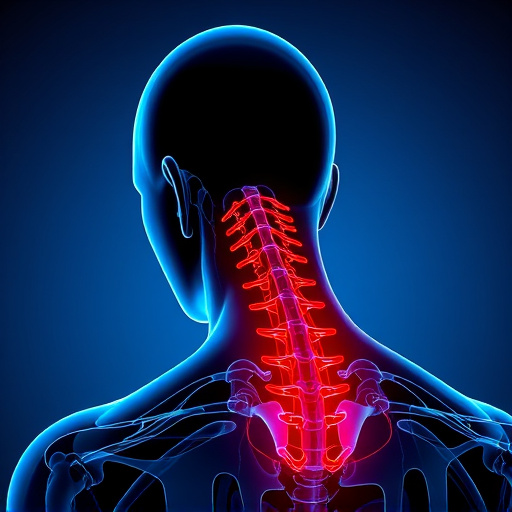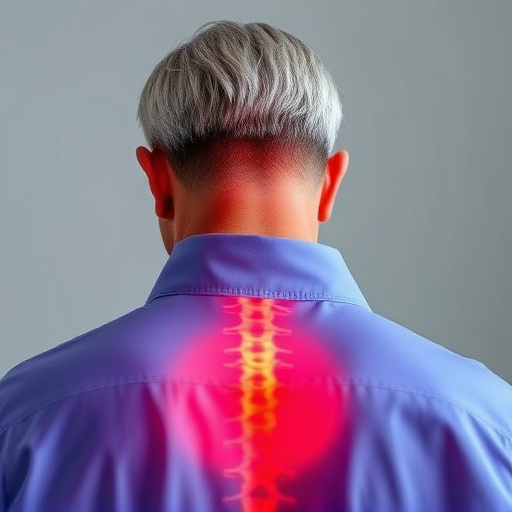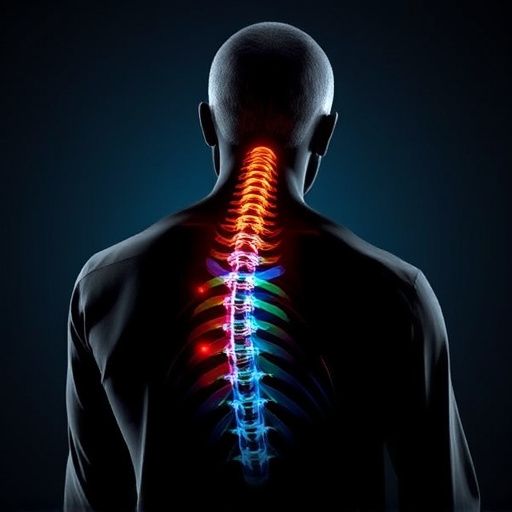Specialized Care for Work-Related Injuries in Jacksonville
Jacksonville residents suffering from work-related injuries, especially auto accidents causing whipl…….
In today’s dynamic business landscape, ensuring the safety and well-being of employees is more critical than ever. This is where the role of a Jacksonville workplace injury specialist becomes pivotal—they are the experts charged with navigating the complex world of occupational health and safety. This article delves into the multifaceted domain of these specialists, exploring their functions, global impact, economic implications, technological integrations, regulatory frameworks, and the challenges they address. By the end, readers will gain a profound understanding of this critical profession and its influence on shaping safer work environments worldwide.
Definition: A Jacksonville workplace injury specialist is a highly skilled professional who focuses on preventing and managing injuries and illnesses in the workplace. They are experts in occupational safety, health, and risk management, playing a vital role in ensuring employee well-being and organizational compliance with safety regulations.
Core Components:
Historical Context: The concept of workplace injury specialists has evolved over the past century, driven by significant industrial accidents that underscored the need for proactive safety measures. From the Triangle Shirtwaist Factory fire in 1911, which highlighted the importance of fire safety regulations, to modern advancements in technology and research, the field has progressed significantly. Today, these specialists leverage data analytics, advanced risk assessment tools, and cutting-edge technologies to create safer workplaces.
Jacksonville workplace injury specialists operate within a global network focused on improving occupational health and safety. This international collaboration is evident in several key trends:
Harmonized Standards: Many countries have adopted or are moving towards harmonizing safety standards, facilitating cross-border business operations while ensuring consistent employee protection. For instance, the European Union’s REACH (Registration, Evaluation, Authorization, and Restriction of Chemicals) regulation sets comprehensive guidelines for chemical safety across member states.
Knowledge Sharing: Global forums and conferences provide platforms for specialists to share best practices, exchange insights, and collaborate on research, leading to innovative solutions for common workplace challenges.
Digital Transformation: The adoption of digital tools for risk assessment, incident reporting, and data analytics has accelerated worldwide, allowing for more efficient monitoring and management of workplace safety. Mobile apps, cloud-based software, and advanced IoT (Internet of Things) devices are revolutionizing how organizations track and address safety issues.
Focus on Mental Health: There is a growing global recognition of the importance of mental health in the workplace, leading to increased emphasis on stress management, employee assistance programs, and initiatives to foster a supportive work environment.
The Jacksonville workplace injury specialist industry is a significant economic sector, with its activities influencing various aspects of the global economy:
Market Size: According to a 2021 report by Research and Markets, the global occupational health and safety market size was valued at USD 37.8 billion in 2020 and is projected to grow at a CAGR of 9.5% from 2021 to 2028. This growth is driven by increasing awareness, stringent regulations, and the need for advanced safety technologies.
Investment Patterns: Organizations across industries are investing in comprehensive safety programs, consulting services, and advanced safety equipment, contributing to market expansion. The demand for specialized training and certifications is also on the rise.
Economic Impact: Effective workplace injury prevention strategies can lead to substantial cost savings for businesses. According to OSHA, for every dollar invested in safety and health programs, employers save an average of $3 in workers’ compensation costs and productivity gains. Moreover, improved employee morale and retention rates contribute to long-term economic benefits.
Regulatory Influence: Government policies and regulatory frameworks play a critical role in shaping the industry’s landscape. Stringent safety regulations can drive up investment in safety infrastructure, while lenient laws may discourage organizations from prioritizing workplace safety.
Technology has revolutionized the way Jacksonville workplace injury specialists approach their roles, offering innovative solutions to complex safety challenges:
Data Analytics: Advanced analytics and machine learning algorithms enable specialists to identify patterns in workplace incidents, predict hazards, and develop targeted prevention strategies. Predictive modeling can anticipate potential risks, allowing for proactive measures.
Mobile Safety Apps: These apps facilitate incident reporting, hazard tracking, and real-time communication between employees and safety managers, ensuring swift responses to safety concerns.
Virtual Reality (VR) Training: VR technology offers immersive training experiences, enabling employees to learn safe work practices in simulated environments without the risks associated with live demonstrations.
Wearable Safety Devices: Smartwatches, sensors, and other wearable technologies can monitor vital signs, detect falls or hazardous conditions, and provide immediate alerts to workers and safety personnel.
Robotic Process Automation (RPA): RPA can automate routine safety tasks, such as data entry, incident reporting, and document management, freeing up specialists’ time for more strategic initiatives.
Jacksonville workplace injury specialists must stay abreast of a myriad of regulations to ensure compliance and maintain safe work environments:
OSHA (Occupational Safety and Health Administration): In the United States, OSHA sets and enforces standards for workplace safety, covering various industries. Employers are required to provide a safe workplace, conduct regular inspections, and train employees on safety protocols.
EU Directive 2018/432: This European Union directive focuses on occupational health and safety, mandating that member states establish minimum requirements for ensuring a high level of safety and health at work.
Global Harmonized System (GHS): GHS is an international standard for classifying and labeling chemicals, ensuring consistent communication of hazard information worldwide.
Industry-Specific Regulations: Many industries have unique regulations addressing specific hazards. For instance, the construction industry has stringent fall protection standards, while healthcare facilities have guidelines for bloodborne pathogen control.
Jacksonville workplace injury specialists face numerous challenges, but they employ strategic solutions to overcome these obstacles:
Budget Constraints: Limited budgets can hinder the implementation of comprehensive safety programs. Specialists address this by prioritizing risks, leveraging low-cost interventions (e.g., safety training, ergonomic assessments), and securing funding through grants or partnerships.
Resistance to Change: Some organizations and employees may resist adopting new safety measures. Specialists overcome this challenge through effective communication, showcasing the benefits of safety initiatives, and involving employees in decision-making processes.
Complex Work Environments: High-risk industries, such as construction and manufacturing, present unique challenges. Specialists tailor their approaches, employing advanced risk assessment tools, specialized training, and industry-specific standards to mitigate risks effectively.
Evolving Regulations: Keeping up with changing regulations can be demanding. Specialists rely on industry associations, government resources, and continuous professional development to stay informed and ensure compliance.
Jacksonville workplace injury specialists are the driving force behind creating and maintaining safer work environments globally. Through their expertise, they contribute to reduced injuries, illnesses, and fatalities, fostering productive and healthy workplaces. The field’s continuous evolution, driven by technological advancements, global collaborations, and stringent regulations, ensures that organizations across industries prioritize occupational health and safety. As the demand for specialized knowledge and skills grows, these specialists will remain essential in shaping a safer future for workers worldwide.

Jacksonville residents suffering from work-related injuries, especially auto accidents causing whipl…….

Work-related injuries, including repetitive motion and sudden accidents like falls or whiplash, pose…….

Jacksonville auto accident chiropractors specialize in treating work-related injuries, from muscle s…….

Work-related injuries, from musculoskeletal disorders to Jacksonville auto accidents, pose risks to…….

Work-related injuries, often caused by repetitive tasks and poor workstation design, are preventable…….

Work-related neck and back injuries from repetitive motions or sudden jolts can severely impact work…….

Work-related injuries, from heavy lifting to hazardous materials, are a growing concern. St. Johns T…….

Work-related injuries impact health, work capacity, and quality of life. PIP (Personal Injury Protec…….